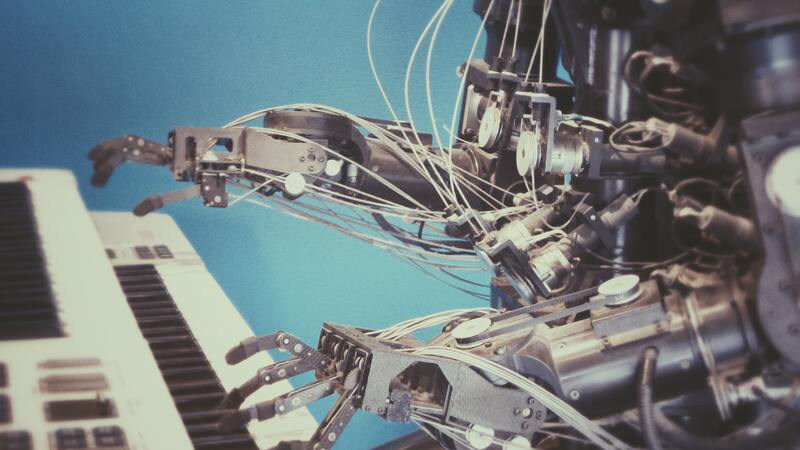Introduction
Generative AI, an innovative aspect of artificial intelligence (AI), enables machines to examine existing data and generate new content. Fundamental to this technology are cutting-edge models like Generative Adversarial Networks (GANs) and Variational Autoencoders (VAEs). These models are trained on extensive datasets, enabling them to grasp intricate patterns and generate content that mirrors the learned patterns, ranging from realistic images to coherent text.
The potential applications of generative AI are expansive. In natural language processing, it can craft human-like text, transforming the way we interact with AI systems. Creative fields benefit from generative AI's ability to produce novel artworks, music, and more. In machine learning, it aids data augmentation, enhancing the robustness of models by creating synthetic data.
How is it Revolutionizing Robotic Process Automation?
- Cognitive Automation: Generative AI's cognitive automation enriches Robotic Process Automation (RPA) by imparting adaptive learning, natural language processing, and creative task automation. This synergy enhances RPA's ability to handle unstructured data, make complex decisions, interpret visual information, and collaborate seamlessly with humans. The result is a more intelligent, versatile, and efficient RPA that excels across diverse domains, promoting advanced automation capabilities and continuous improvement.
- Adaptive Learning: Adaptive learning, facilitated by Generative AI, revolutionizes Robotic Process Automation (RPA). RPA systems with Generative AI continuously evolve and adapt by incorporating machine learning capabilities. This dynamic learning process enables them to adjust autonomously to changing environments, improving task performance and reducing the need for manual intervention. Generative AI's adaptability enhances the efficiency and resilience of RPA, making it a powerful force in automating complex and evolving processes.
- Enhanced Data Processing: Generative AI facilitates more advanced data processing tasks, such as image recognition, enabling robots to interpret visual information. This is valuable in scenarios where automation requires images, charts, or other visual data analysis.
- Task Automation in Diverse Domains: Generative AI elevates Robotic Process Automation (RPA) by enabling task automation across diverse domains. RPA systems infused with Generative AI are equipped with adaptive learning and excel in handling intricate tasks. From finance to customer service, these systems effortlessly adapt to varying workflows. This versatility, backed by generative capabilities, extends the scope of RPA applications, making it a powerful tool for automating complex processes in diverse industries with efficiency and adaptability.
- Complex Decision-Making: Generative AI empowers Robotic Process Automation (RPA) with advanced decision-making capabilities. RPA systems enhanced by Generative AI excel in navigating nuanced scenarios, weighing multiple variables, and understanding contextual intricacies. This enables automation to extend beyond rule-based tasks, addressing complex decision-making processes. The synergy between RPA and Generative AI ensures more sophisticated and adaptive automation, making it a valuable asset in scenarios where intricate decisions are crucial for effective workflow execution.
- Human-Robot Collaboration: Generative AI fosters seamless Human-Robot Collaboration by enhancing communication and interaction. In Robotic Process Automation (RPA), Generative AI enables robots to understand and respond effectively to human inputs, creating a collaborative work environment. This improved interaction facilitates more intuitive and versatile collaboration, where humans and robots complement each other's strengths, contributing to enhanced productivity and efficiency in diverse tasks.
- Improved Error Handling: Generative AI equips RPA systems with continuous learning, allowing them to detect and address errors more effectively. The integrated RPA system becomes more resilient and reliable by analyzing patterns and adapting to changes. This proactive approach to error handling improves overall performance, ensuring smoother and more dependable automation workflows in dynamic environments.
Conclusion
In summary, the integration of Generative AI represents a revolutionary leap in Robotic Process Automation (RPA), reshaping the landscape of automated workflows. Generative AI equips RPA systems with cognitive abilities, enabling them to process unstructured data, make nuanced decisions, and continually learn from evolving scenarios. This fusion transforms RPA into a dynamic and adaptive force, reducing reliance on static rules and manual updates.
Human-robot collaboration reaches new heights as Generative AI enhances RPA's ability to understand and respond to human inputs, fostering a more intuitive and productive working relationship. The improved error-handling mechanisms, driven by continuous learning, make RPA systems more resilient and reliable, ensuring smoother operations in dynamic environments.
Beyond traditional automation tasks, Generative AI and RPA collaboration opens doors to automation in creative and complex domains. This synergy amplifies RPA's role across diverse industries, from content generation to intricate decision-making.
In essence, Generative AI is not just enhancing RPA; it's reshaping it into a more intelligent, adaptable, and versatile tool, paving the way for a future where automation seamlessly integrates with evolving business needs and challenges. This transformative partnership propels industries towards more efficient, sophisticated, and responsive automated processes.
The IntelliBuddies® RDA platform offers user-friendly Generative AI activities for a range of service providers, allowing you to incorporate these services into your process scope for substantial gains in automation efficiency.





